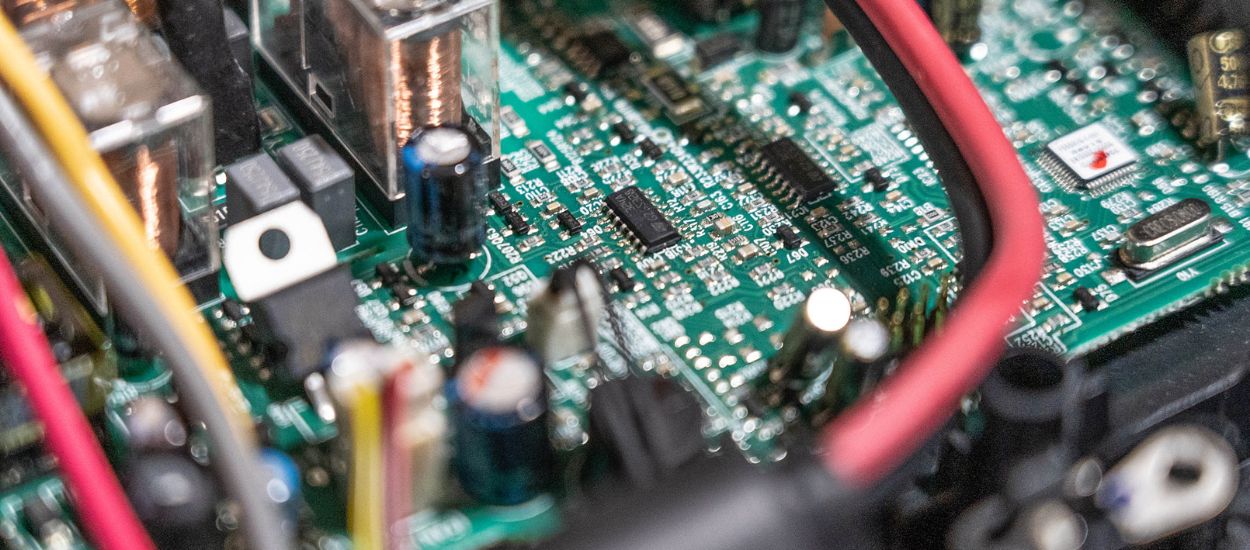
The e-Waste Cybersecurity Connection
As technology advances, the amount of electronic waste (e-waste) generated by businesses is increasing rapidly. E-waste recycling companies play a crucial role in your corporate cybersecurity strategy by ensuring that your company’s sensitive data is securely destroyed before disposing of electronic devices. By properly disposing of electronic devices, you can help ensure that sensitive information is not accessible, creating a more secure, sustainable world.
The SEC Unveils New Cybersecurity Rules
The Securities and Exchange Commission (SEC) has recently adopted new rules on cybersecurity, requiring public companies to disclose their cybersecurity risks. The rules also require companies to have policies and procedures in place to protect against cyber threats and to notify investors in the event of a breach.
The SEC’s new rules are designed to enhance transparency and accountability in the wake of increasing cyber threats. The rules apply to all public companies, including those listed on the New York Stock Exchange and Nasdaq.
Companies must now disclose cybersecurity risks and incidents in their annual reports and other filings with the SEC. The disclosures must include a description of the company’s cybersecurity policies and procedures, the risks associated with cyber incidents and the potential impact of such incidents on the company’s operations and financial condition.
These policies and procedures are designed to protect the confidentiality, integrity and availability of the company’s information systems. In the event of a breach, companies must notify investors in a timely and accurate manner. The notification must include a description of the incident, the impact on the company’s operations and financial condition and the steps taken to mitigate the effects of the breach.
How E-Waste Recycling Companies Can Help
Responsible E-waste Recycling / IT Asset Disposal
When businesses dispose of electronic devices such as computers, smartphones and tablets, they often forget that these devices contain sensitive data that cybercriminals can access if they are not disposed of properly. By partnering with a reputable e-waste recycling company, businesses that offer responsible IT asset disposal services can ensure that their sensitive data is securely destroyed and that they are complying with data protection regulations, helping prevent data breaches and protecting their reputation.
In addition to protecting sensitive data, e-waste recycling companies can help businesses reduce their environmental impact by properly disposing of electronic devices, helping them meet their sustainability goals and minimizing their carbon footprints.
Secure data destruction
Secure data destruction is the process of permanently erasing data from electronic devices to prevent it from being accessed by unauthorized individuals. This is especially important for businesses that handle sensitive data, such as financial information, personal data and confidential business information.
There are various secure data destruction methods. These techniques include:
- Physical destruction: destroying a device by shredding or crushing it.
- Degaussing: using a magnetic field to erase the data on the device.
- Software-based wiping: using specialized software to overwrite the data on the device multiple times, making it unrecoverable.
When partnering with an e-waste recycler, it’s essential to choose a company that follows industry standards and regulations for secure data destruction, such as the National Institute of Standards and Technology (NIST) guidelines.
Data Center Decommissioning
Data center decommissioning is the process of shutting down and removing a data center or server room. This involves the removal of all hardware, software and data from the facility. Data center decommissioning typically takes place when a company moves to a new location, upgrades its technology or consolidates its data centers.
The process of data center decommissioning involves several steps, including:
1. Planning: Draft a detailed plan for the decommissioning process, including timelines, budgets and the resources required
2. Inventory: Create an inventory of all hardware, software and data in the data center.
3. Data backup: Back up all data in the data center to ensure it is not lost during the decommissioning process.
4. Hardware removal: Remove all hardware from the data center, including servers, storage devices and networking equipment.
5. Data destruction: Securely erase data from all hardware to prevent it from being accessed by unauthorized individuals.
6. Recycling: Dispose of all hardware in an environmentally friendly manner and in accordance with local regulations.
Planning and proper execution are vital during data center decommissioning to ensure all data is securely erased and all hardware is disposed of properly. When decommissioning a data center, working with a reputable e-waste recycling company like CompuCycle ensures that all laws, industry standards and regulations are followed.
But remember, not all e-recycling companies are created equal. To ensure that you are working with a reputable e-waste recycling company, always be sure to do the following:
- Ask about and confirm their certifications
- Research their history and verify the number of years they have been in business
- Visit their facilities and understand their entire recycling process
- Confirm that they are a single-source recycler that doesn’t use other companies for downstream recycling.
If your organization has old IT assets containing sensitive information, contact the e-waste professionals at CompuCycle. Their state-of-the-art facilities, certifications and industry-best practices provide the security your organization deserves. Just call 713-869-6700 or visit CompuCycle.com for more information.
Recent Articles
Secure Electronics Disposal in Houston: Why the City’s Largest Industries Trust CompuCycle
When a major healthcare system decommissions thousands of laptops, or an oil and gas company retires an entire data center, one question comes up again and again: What happens to all that data — and…
Read MoreCompuCycle Executives Join R2 TAC and e-Stewards Leadership Council to Advance ITAD Standards
Houston-based ITAD provider deepens its industry influence through active participation in standard-setting committees. As corporate ITAD needs evolve alongside stricter compliance and ESG requirements, CompuCycle continues to lead the way—this time by contributing directly to…
Read MoreI’m Just a Computer: A Journey Through ITAD Recycling
Meet Chip the Computer – he’s about to take you on an unforgettable journey through the world of IT Asset Disposition (ITAD). Buckle up for an adventure that’s both educational and entertaining! Chapter 1: “Hello,…
Read MoreIs There a Wrong Way to Recycle Electronics?
Most people agree that recycling electronics is the right thing to do. It prevents hazardous waste from entering landfills, supports sustainability goals, and allows for the recovery of valuable materials. But what many businesses don’t…
Read More


